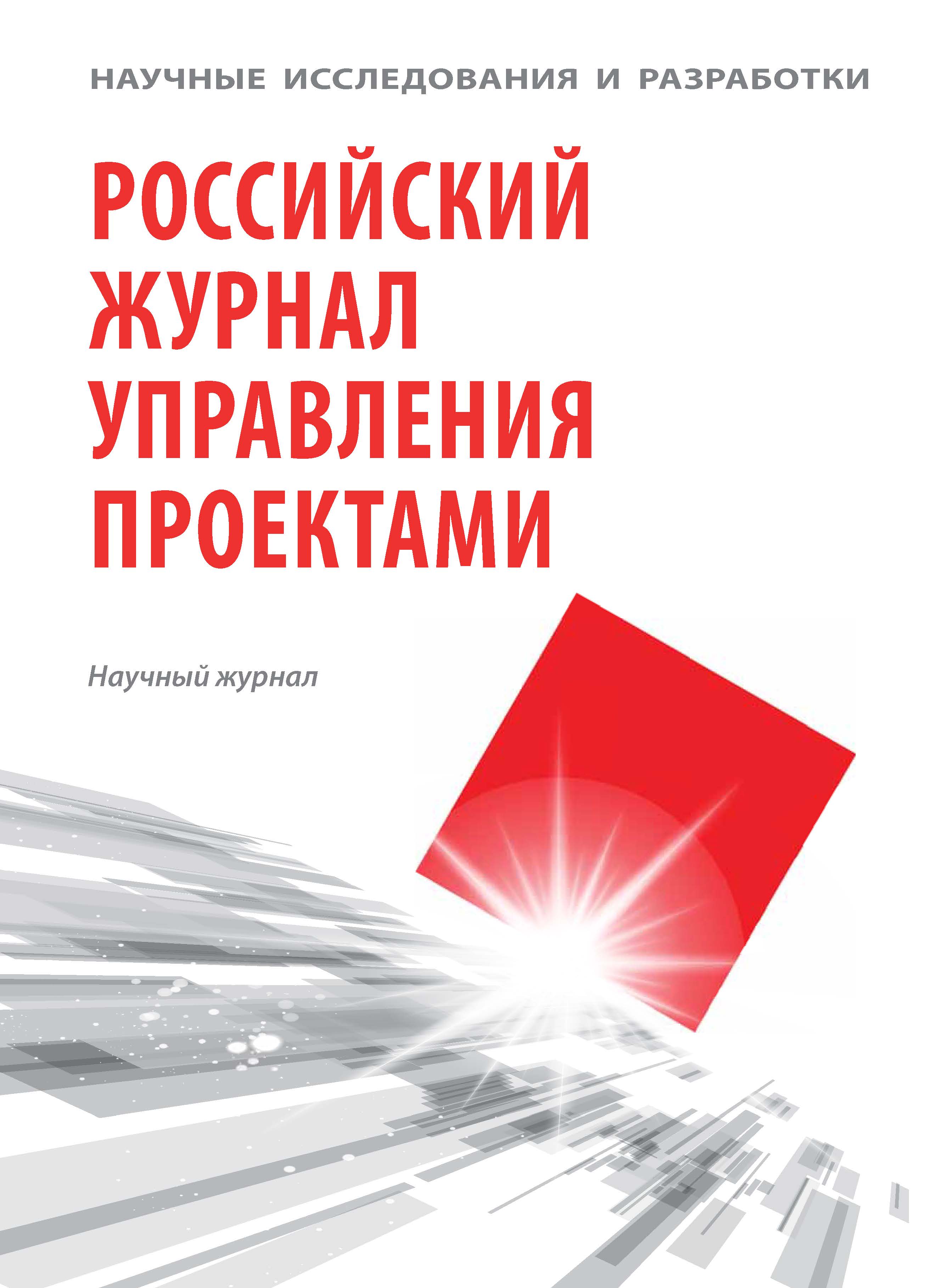Russian Federation
UDC 338.45
UDC 338.242
A mechanism for managing transformation programs for the rescue of distressed companies is suggested and based on the adaptation of the project management algorithm, including: 1) formation of a list of projects in the areas of market development, business process improvement, resource optimization; 2) establishment of interconnection and mutual influence of projects based on a network approach; 3) prioritization of projects by assigning network ranks. In contrast to the traditional approach to understanding the crisis management program as a linear set of projects, the author uses a network approach that allows us to consider the projects included in the program as its interrelated components. Taking into account the mutual influence of each project on others makes it possible to take a systematic look at the implementation of the crisis management program, increases the chances of not missing important elements and predicting the consequences of applying not only individual measures, but also their complex (for example, to see that the failure of one project will lead to the inability to complete others), unwinding the tangle of relationships taking into account the priority of projects, their ranking. The proposed methodological approach is tested on an illustrative example of engineering enterprise.
crisis management program, project management, transformation program of rescue, distressed companies, insolvency (bankruptcy) prevention, network ranking of projects, projects’ types, prioritization of projects, adjacency matrix
1. Bobyleva A.Z. Preduprezhdenie bankrotstva: institucional'naya podderzhka sliyaniy i prisoedineniy problemnyh kompaniy [Tekst] / A.Z. Bobyleva, O.A. L'vova // Problemy teorii i praktiki upravleniya. - 2019. - № 7. - C. 100-112.
2. Bobyleva A.Z. Sliyaniya i prisoedineniya neblagopoluchnyh kompaniy kak mehanizm ozdorovleniya biznesa i preduprezhdeniya bankrotstva [Tekst] / A.Z. Bobyleva, O.A. L'vova // Gosudarstvennoe upravlenie. - 2019. - № 74. - S. 218-240.
3. L'vova O.A. Reabilitacionnyy potencial bankrotstva biznesa: opredelit', izmerit', uvelichit' [Tekst] / O.A. L'vova // EKO. - 2019. - № 6. - S. 83-101.
4. Mitroff I.I., Shrivastava P., Udwadia F.E. Effective crisis management // Academy of Management Perspectives. 1987. Vol. 1, No. 4. R. 283-292.
5. ISO 22301. Societal security - Business continuity management systems (BCMS) [Elektronnyy resurs]. URL: https://www.iso.org/obp/ui/#iso:std:iso:22301:ed-1:v2:en (data obrascheniya: 26.01.2023).
6. Nacional'nyy standart Rossiyskoy Federacii ISO 22301-2014 «Sistemy menedzhmenta nepreryvnosti biznesa. Obschie trebovaniya» [Elektronnyy resurs]. - URL: https://docs.cntd.ru/document/1200113802 (data obrascheniya: 26.01.2023).
7. Krell E. Business Continuity Management. NY: American Institute of Certified Public Accountants, 2006.
8. Smith D. Business continuity and crisis management // Management Quarterly. 2003. Vol. 44. No. 1. R. 27-33.
9. Bobyleva A.Z. Upravlenie transformacionnymi programmami sliyaniy i prisoedineniy s uchastiem problemnyh kompaniy [Tekst] / A.Z. Bobyleva, O.A. L'vova // Vestnik Sankt-Peterburgskogo universiteta. Menedzhment. - 2019. - T. 18. - № 4. - S. 483-509.
10. An'shin V.M. Upravlenie processami antikrizisnoy cifrovoy transformacii na primere broylernogo proizvodstva [Tekst] / V.M. An'shin, A.Z. Bobyleva // APK: Ekonomika, upravlenie. - 2021. - № 2. - S. 33-40.
11. Kochetkova A.I. Antikrizisnoe upravlenie. Instrumentariy [Tekst] / A.I. Kochetkova, P.N. Kochetkov. - M.: Yurayt, 2017.
12. Shevchuk I.A. Issledovanie mehanizma antikrizisnogo upravleniya kompaniey [Tekst] / I.A. Shevchuk, V.I. Manaenkov // Sbornik materialov vserossiyskoy nacional'noy konferencii «Teoriya i praktika upravleniya social'no-ekonomicheskim razvitiem territoriy na razlichnyh hozyaystvennyh urovnyah». - Simferopol': Arial, 2020. - S. 91-100.
13. Zub A.T. Situacionnoe planirovanie kak instrument antikrizisnogo upravleniya [Tekst] / A.T. Zub // Ekonomicheskie nauki. - 2017. - № 6. - S. 25-29.
14. Antikrizisnoe upravlenie: mehanizmy gosudarstva, tehnologii biznesa [Tekst]; v 2 ch. / pod obsch. red. A.Z. Bobylevoy. - 2-e izd., pererab. i dop. - M.: Yurayt, 2021.
15. Anshin V., Bobyleva A. The digital transformation program management in medium-sized businesses: a network approach //Serbian Journal of Management. 2021. Vol. 16. № 1.
16. Franklin M. Managing business transformation: A practical guide. IT Governance Ltd., 2011.
17. Thiry M. Program management. Routledge, 2016.
18. A Guide to the Project Management Body of Knowledge (PMBOK). Project Management Institute, 2021 [Elektronnyy resurs]. URL: https://www.pmi.org/pmbok-guide-standards/foundational/PMBOK (data obrascheniya: 26.01.2023).
19. Cooper R.G., Edgett S.J., Kleinschmidt E.J. Portfolio management for new products: picking the winners. - Product Development Institute Inc., 2001.
20. Neumeier A., Radszuwill S., Garizy T.Z. Modeling project criticality in IT project portfolios // International Journal of Project Management. 2018. Vol. 36. No. 6. Rp. 833-844.
21. Bilgin G. et al. Handling project dependencies in portfolio management // Procedia computer science. 2017. Vol. 121. Rp. 356-363.
22. An'shin V.M. Sistemnyy podhod v upravlenii transformacionnymi programmami v kompanii [Tekst] / V.M. An'shin // Nauchnye issledovaniya i razrabotki. Rossiyskiy zhurnal upravleniya proektami. - 2016. - T. 5. - № 2. - S. 3-20.
23. Anshin V.M., Skripka E. Management of sustainable development in small and medium-sized companies: driver and network approach // Proceedings of the 30th International Business Information Management Association Conference, IBIMA 2017-Vision 2020: Sustainable Economic development, Innovation Management, and Global Growth. 2017. Rp. 3106-3114.
24. Teller J., Kock A. An empirical investigation on how portfolio risk management influences project portfolio success // International Journal of Project Management. 2013. Vol. 31. No. 6. R. 817-829.
25. Ghasemi F. et al. Project portfolio risk identification and analysis, considering project risk interactions and using Bayesian networks // Sustainability. 2018. Vol. 10. No. 5. Pp. 1609-1632.
26. Sanchez H., Robert B., Pellerin R. A project portfolio riskopportunity identification framework // Project Management Journal. 2008. Vol. 39. No. 3. Rp. 97-109.






